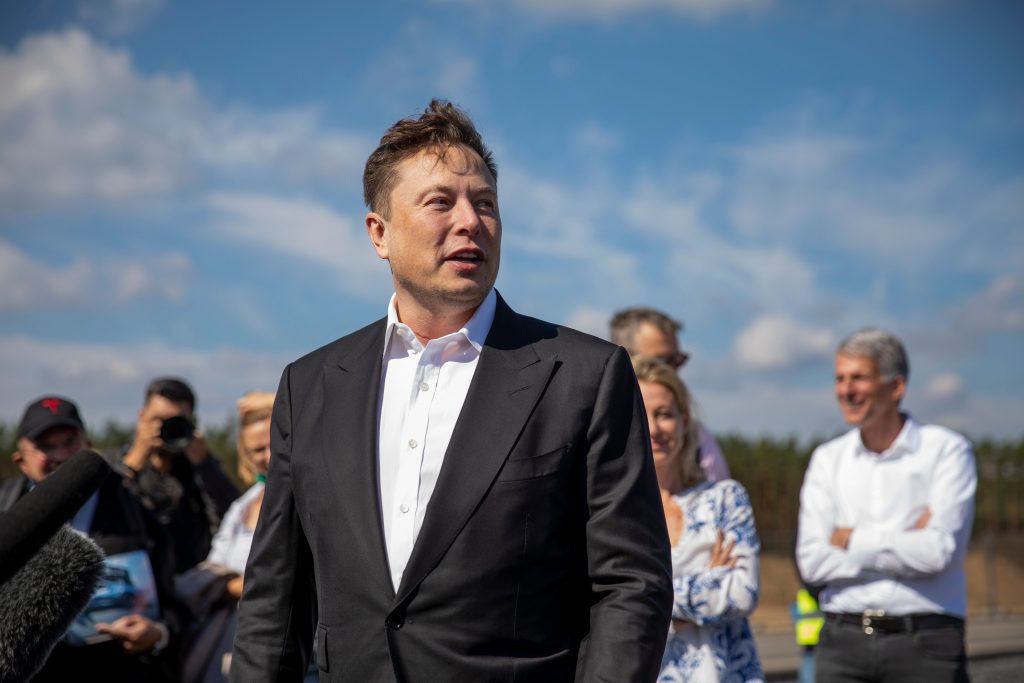- Elon Musk says the true value of Tesla comes down to solving the question of self-driving.
- Without the revolutionary tech, the automaker would be "worth basically zero," Musk said.
- He's promised self-driving cars since 2015, but Tesla has since faced setbacks with its software.
Tesla founder Elon Musk said the key to his electric automaker's value is whether it can achieve self-driving technology, adding that the firm would be "worth basically zero" without it.
The billionaire was talking about several software issues for Tesla vehicles that he wanted to fix, such as the in-car web browser, which he said is currently too slow.
"But the overwhelming focus is on solving full self-driving," Musk said in an interview with the YouTube channel "Tesla Owners Silicon Valley," published Tuesday.
"That's essential. It's really the difference between Tesla being worth a lot of money or worth basically zero," he said.
Musk said creating fully autonomous vehicles is vital to Tesla's financial success, and cited an encounter with an unnamed auto investor to explain his belief.
"He said the car companies don't make any money on the new car sales. They make all of their money selling used parts to their existing fleet," Musk said.
"The life of a car, before it hits the junkyard, might be 20 years. Warranty is going to typically run out after four years and there's a bunch of stuff that's not covered under warranty," he said.
"If you've got a steady state fleet it means that 80% of your fleet is not under warranty," he continued. "So you can sell high margin replacement parts for the existing fleet and you can sell your new cars at effectively zero margin. It's like a razor and blades thing."
Musk said this presents a "massive barrier to entry" for new automakers like Tesla, who must charge much more for their cars than their competitors.
To do so, they have to make a product "so compelling" that buyers are willing to pay more for it, he said. According to Musk, Tesla's compelling features are its cars' electric power and self-driving potential.
"That is the only way to it. You have to win on autonomy, and you have to win on electrification," he said.
Musk's self-driving promise still unrealized
Musk has been making unfulfilled promises to develop self-driving Teslas since 2015, when he predicted that the technology would hit the roads in three years.
Tesla already has an "Autopilot" feature that allows its cars to automatically adjust their speeds and steer within their lanes, though the function still requires driver supervision.
Its "Full Self-Driving" service, which Tesla owners can buy for a one-time fee of $12,000 or a subscription of $199 per month, allows the car to automatically change lanes, recognize stop signs and traffic lights, and park. But as with the Autopilot feature, full driver attention is still needed in the car.
In 2019, Musk said he was "certain" that by the end of that year, Teslas "will be able to find you in a parking lot, pick you up, take you all the way to your destination without an intervention."
"That is not a question mark," he said at the time.
But with Tesla facing setbacks on its prototype self-driving software, it's unclear when the technology will officially launch. In a 2021 Q4 earnings call held in January, Musk again promised Teslas would become fully autonomous by the end of the year.
As of Wednesday, Tesla shares are worth $699, down 41% year-to-date from their January peak of $1,200. Tesla's market capitalization is estimated at $724 billion.
